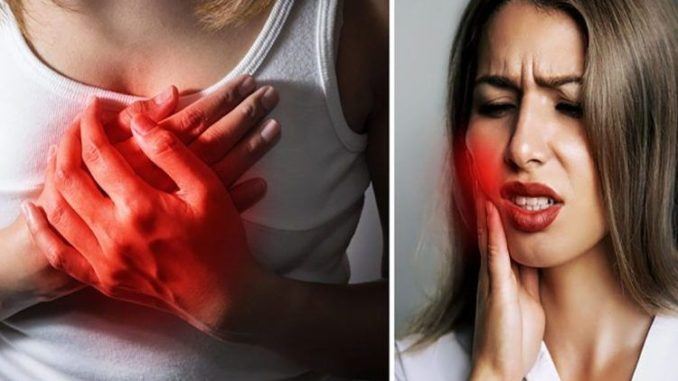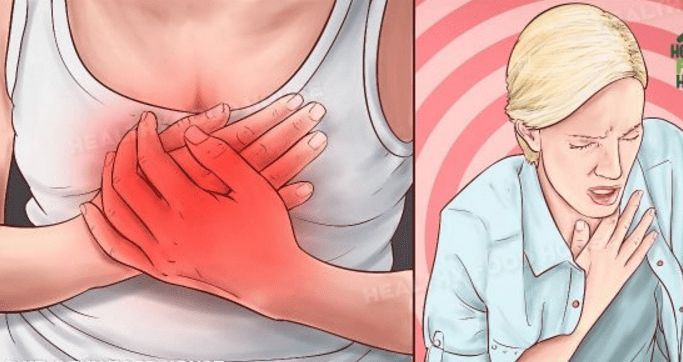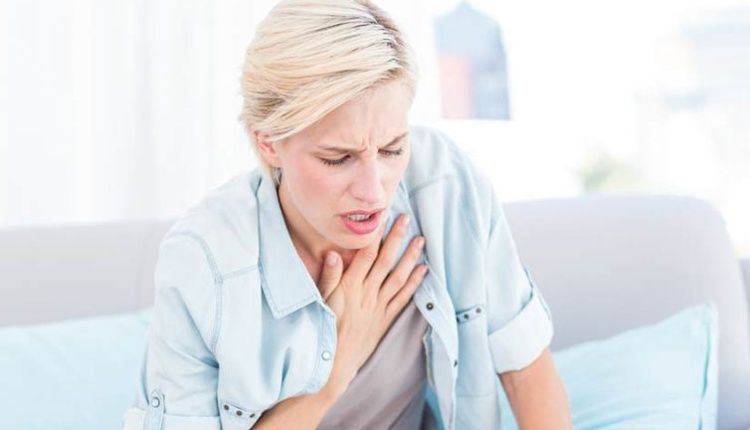
A heart attack occurs if the blood flow that brings oxygen to the heart muscle is completely blocked or excessively reduced. The main reason is the narrowing of the arteries that supply blood to the heart due to plaque buildup.
Studies have shown that 43.8 million women worldwide suffer from some form of heart disease so far. Women are more prone to heart disease than men and have the highest risk of death from all types of cancer due to a heart attack. However, a heart attack is more commonly associated with men, so they contribute to increased risks, as women do not consider a heart attack as a possible criminal.
The most common symptoms of heart attack are less pronounced in women and can relate to something less serious, for example, flu. Therefore, it is important to know these warning signs of a heart attack in women.

5 Symptoms of a Heart Attack in Women
1- Pain in Areas Outside the Chest
In most cases, pain occurs in areas other than the chest, such as the arm, back, or chin.
2- Chest Pressure
Although this pressure is not as intense as in men, women often experience uncomfortable tightening, pressure, and painfulness in the center of your chest for a few minutes. Women depict it as an intense back upper pressure or a string tied around it.
3- Sweating And Shortness Of Breath
If you experience an explosion in a cold sweat that is aggravated by exercise or accompanied by chest pain, you should call 112 immediately.
4- Nausea Or Vomiting
These symptoms are often attributed to problems such as stomach microbes, but women often experience nausea or vomiting before a heart attack.
5- Unusual Fatigue
If you are always tired for no apparent reason and experience some of the above symptoms, you should visit your doctor. However, you can take some preventive measures that can help reduce your risk of a heart attack.

What Should Be Done to Reduce the Risk of Heart Attack?
Eat Healthy Foods
Take care of fruits and vegetables, especially garlic consumption, as it lowers blood pressure. Also, an increased risk of heart attack is often associated with inflammation, so you should also consume Curcumin, the active ingredient in turmeric, which has powerful anti-inflammatory properties that reduce plaque buildup in the arteries.
2- Reduce Sugar Consumption
Excessive sugar consumption negatively affects the body, reduces good cholesterol, and increases triglycerides, thereby increasing the risk of having a heart attack. For this reason, it is recommended to stay away from sugary foods.
3- Take Supplements
To expand arteries and help blood flow, you should consume fish oil. Also, vitamin C prevents damage to the arteries, while vitamin K protects against calcification (hardening of the arteries), which may be another cause of a heart attack.
4- Exercising
Intense daily activity can increase the risk of heart attack, but mild exercise reduces the risk of a heart attack. Instead, you should immediately call 112 and go to a hospital.

Leave a Reply